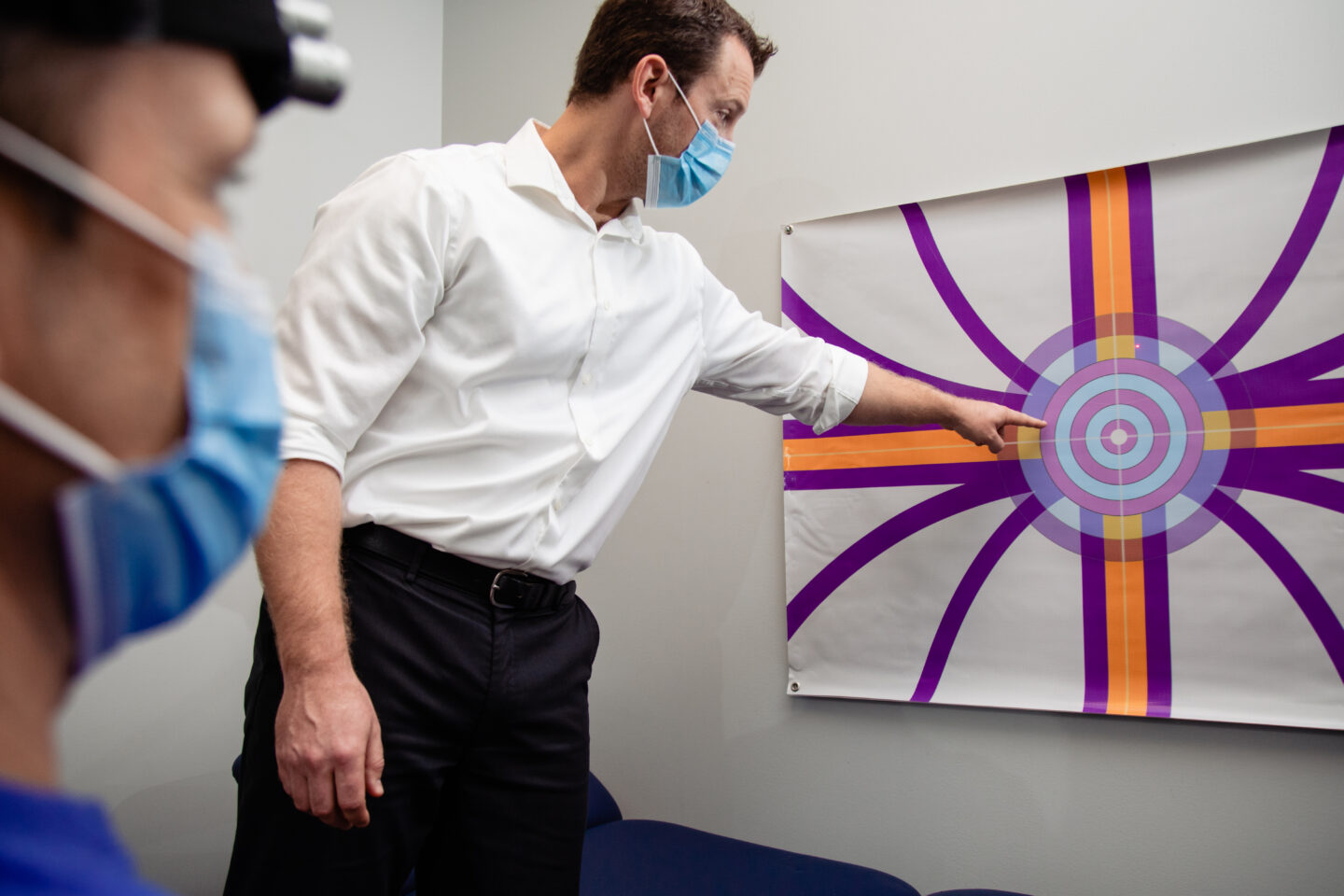Concussion Management
What is a concussion?
A concussion is a non-congenital insult to the brain from an external mechanical force, possibly leading to permanent or temporary impairment of cognitive, physical, and/or psychosocial function, with an associated diminished or altered state of consciousness.
Signs & Symptoms
If one or more of the following are present after a blow to the head, a concussion should be suspected and the initial treatment guidelines (outlined below) should be followed.
• Symptoms such as headaches, dizziness, nausea, and/or “feeling off” or “dazed”.
• Physical findings such as poor coordination, impaired or loss of consciousness, glassy eyed, vomiting, poor memory, and/or decreased performance.
• Behavioural findings such as irritability.
• Cognitive findings such as confusion and poor concentration.

Initial treatment
If a blow to the head was severe enough to cause any of the signs and symptoms outlined above the following should be followed:
1. Immediately seek medical attention.
2. Never leave the athlete alone, but monitor the symptoms on a regular basis for the first few hours.
3. Initially avoid activity (mental and/or physical) if it increases the symptoms. In other words, if physical exertion or concentrating (i.e. studying, reading, watching TV, playing video games, texting, etc.) increase the symptoms, these activities should be temporarily avoided.
4. If there are complaints of headaches and/or neck pain initial treatment for a soft tissue injury should be considered (i.e. application of ice/heat, activity modification, gentle motion exercises, proper posture).
5. See a health care provider (physician, physical therapist, athletic therapist or chiropractor) who has experience in dealing with concussions and can gradually progress them back to their pre-injury activity.
North 49 Physical Therapy can help! Make an appointment today.

Prevention is Key
Understanding the natural history and treatment principles is important, but prevention is key. Steps should be taken to reduce the chance of a concussion by ensuring that equipment is properly fitted, proper technique coached, and rules are enforced for safety.
What if one has ongoing symptoms?
1. If one has persistent headaches and/or neck pain they should be assessed by a physical therapist, chiropractor, or athletic therapist.
2. If one has persistent dizziness (more than 2 weeks) they should be seen by a vestibular therapist (physical therapist or occupational therapist with specialized training regarding dizziness).
3. If symptoms persist despite following the above treatment guidelines, consideration should be made for a referral to a neurologist and/or a multidisciplinary team (physician, psychologist, physical therapist, etc) to rule out other factors that could be causing the persistent symptoms.
Note: Persistent symptoms are usually non-specific to concussion and are often attributable to non-injury related factors. Symptoms such as headaches, dizziness, irritability, impaired memory and concentration are also commonly found in individuals with chronic pain, depression, fibromyalgia, and even otherwise healthy individuals.
What is the long term outcome of a concussion?
One should expect a full recovery (symptoms, cognition, general functioning) within days to weeks.
Risk factors that could lead to a prolonged recovery or more serious complications are:
• A second concussion within the first 7-10 days of the original concussion.
• Positive neurological findings.
• Subsequent concussions that are becoming easier to occur, more frequent, and/or lasting longer.
CONTACT & HOURS
Phone: 306-343-7776
Fax: 306-343-7780
Monday to Friday: 9am-6pm
Locally Owned & Operated
